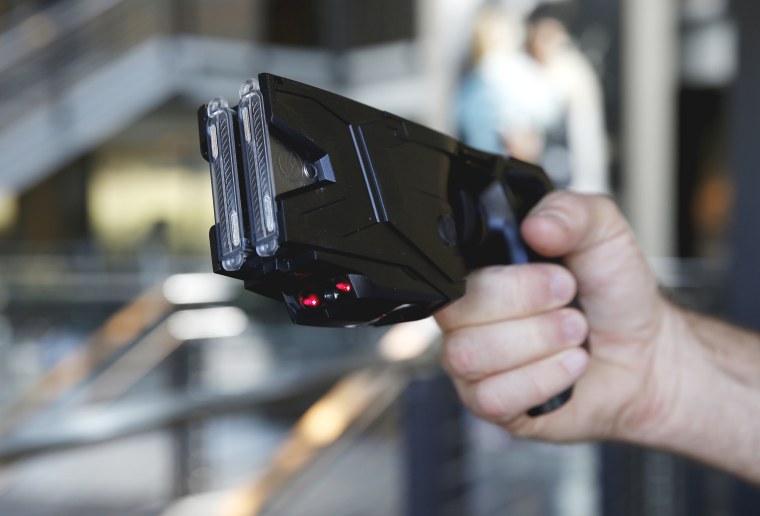New research has found that an increasingly popular law enforcement weapon, the Taser stun gun, can create short-term cognitive impairment comparable to dementia.
In a study published this month in the journal "Criminology & Public Policy," researchers from Arizona State University and Drexel University examined what they describe as a little known corner of the criminal justice world: the effect of 50,000 volts on a person's brain.

The researchers say their findings are especially significant for that routine part of police work that occurs at the point of arrest — the reading of a person’s Miranda rights.
“There are plenty of people in prison who were tased and then immediately questioned,” one of the researchers, Robert Kane, said in a statement published with the study. “Were they intellectually capable of giving ‘knowing’ and ‘valid’ waivers of their Miranda rights before being subjected to a police interrogation?”
The researchers recruited 142 brave college students from Arizona State to be tased for science. Unlike the "typical suspect," the study notes, whose cognition may be diminished by drugs, alcohol or mental illness at the time of arrest, the students were forbidden from drinking and using drugs.
They were divided into four groups, and five second shocks of 50,000 volts were administered to two of them. The researchers found "statistically significant reductions" in verbal learning and memory; some participants also had trouble concentrating, and they felt overwhelmed and anxious.
“Being shocked had a traumatic effect on some participants,” Kane said, according to the statement. “Some were emotionally debilitated by the experience.”
The researchers suggest that police departments require officers to wait one hour before issuing someone their Miranda rights after they've been tased.
Taser, the maker of the stun gun examined by the researchers, did not respond to a request for comment.